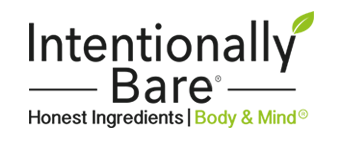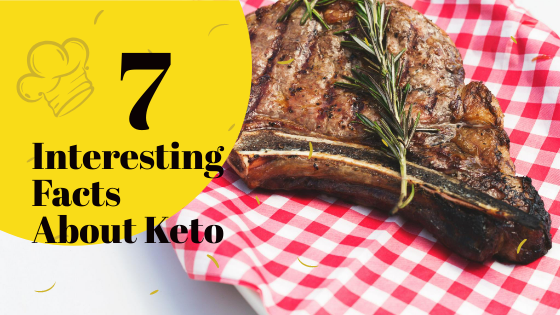As you’re doing your research into the ketogenic diet, it’s easy to get overwhelmed. There’s a lot of information out there! It can be hard to get to the bottom of exactly what the keto diet is. I’ve put together a post that I hope will answer all of your questions about what the ketogenic diet is, and what it’s not.
The Early Days of the Ketogenic Diet
The keto diet was developed in the 1920’s as a way to help control refractory (not controlled by medication) seizures in children with epilepsy. In the earlier twentieth century, few anti-convulsant drugs were available. Fasting had long been used as a means to control epilepsy, but it certainly was not a long term solution. Fasting had been used in ancient Greece but wasn’t studied scientifically until 1911. The experiments with the ketogenic diet were an attempt to recreate the success that came from fasting, but with actual food consumption.
By the 1970s, when the medication Depakote was developed, the keto diet was in decline. Depakote offered control to many epilepsy patients who previously had only found relief on the keto diet. It wasn’t until 1972 when Dr. Atkins Diet Revolution was released, that ketogenic diets came into the mainstream for weight loss.
The Program
The point of the ketogenic diet is to put your body into a state of dietary ketosis. Ketosis is a basic metabolic process where the body uses fat as fuel instead of glucose. Ketones is the body’s preferred fuel. Most people enter ketosis for a few hours each night, during sleep; ketosis can also happen when people are ill and lacking an appetite, or fasting. When following a ketogenic diet, the goal is to be in ketosis for an extended period of time.
Ketosis is different from diabetic ketoacidosis. Diabetic ketoacidosis happens when your body can’t produce enough insulin. Ketones develop too quickly and the blood turns acidic.
Foods
On the ketogenic diet, certain foods are avoided. These include breads, pastas, starchy vegetables, most fruits, and sugar. While the goal of the ketogenic diet is to keep carbs under a certain number of grams, eating even small amounts of flour or sugar can keep the body out of ketosis. Foods that are commonly consumed include salads, greens, meat, eggs, cheeses, and vegetables including cauliflower and broccoli. Often, emphasis is placed on consuming lots of water and increasing your electrolytes, especially during the early days of adopting the ketogenic diet. Alcohol is generally avoided, as consuming alcohol will take your body out of ketosis until the alcohol is burned off, not to mention the liver has to work hard to flush out the alcohol, slowing down metabolism.
Fats
Increasing your fat intake is an important part of the ketogenic diet. Eating more fat is often difficult for some people to do. It goes against everything we’ve ever been taught. While in the early days of keto many of us are blissfully munching on bacon, as weight loss progresses and we need to tighten up our macros, we may focus less on foods like bacon or cheese and more on MCT oils. Focusing more on MCT oils makes it easier for us to consume the amount of fat that we’re supposed to. Thankfully, the old days of eating a spoonful of coconut oil are over; MCT oils come in capsule form now.
Health Benefits
For many people, the keto diet isn’t just about weight loss. There are many health benefits to the keto diet. Some people find a reduction in inflammation when they are strictly following keto and not eating any bread or pasta; this may be due to the gluten. Many people find that their A1C has reduced. Migraines often see some improvement, and anxiety may be lessened.
Supplements
Supplements are important in keto. Let me rephrase: the right supplements are an important part of the ketogenic diet. BHBs can help you maintain energy in the afternoons, allowing you to skip that soda you used to drink with lunch. MCT oil can ensure that you’re getting high-quality Medium Chain Triglycerides. Chia seeds are a great way to add fiber to a diet that is often lacking. A good multi-vitamin can help you take in the proper amount of nutrients. We do not hold on to water as much when we don’t eat carbs, and so electrolytes are an important part of keto as well. You get most of them in our KetoBHB, but you will want to add potassium citrate to your diet as well.
The Down-Side
Of course, there are some downsides to the ketogenic diet. Many people gain weight when they stop eating keto. That’s the same with any change of lifestyle though; if you go back to eating the way you were when you got fat, it’s logical to assume that you’ll get fat again. The other health benefits that you enjoyed while eating keto are also likely to go by the wayside if you quit eating keto, too.
This doesn’t mean that you’ll never have a birthday cake again. It does mean that if your office has a monthly birthday celebration, you may need to choose between that birthday cake and the birthday cake at a friend’s house later in the month. It means that you may begin to prefer to have your burgers without a bun, or that you drink pickle juice rather than a sugar-laden electrolyte drink after a workout.
The keto flu is a downside, but it’s only temporary. Some people have a hard time adding fats into their diet. In that case, you’ll need to start slow and then increase your fats over weeks. That may delay your weight loss. It can also take a while to find the right combination of macros to help you achieve, and then maintain your goals.
Some people see a temporary spike in cholesterol when they start. This is very common, so check again in 6 months as this is when it will regulate. If you have high cholesterol or want to know the REAL truth about it, please read ‘Cholesterol Clarity’ by Jimmy Moore or the Obesity Code by Dr. Jason Fung.
Still have questions about the keto diet? Check out my Facebook group where I will personally answer all of your questions!
You got this!
Leta ~ Intentionally Bare
DISCLAIMER: The information in this blog is for educational and informational purposes only. The content in here is not intended to be a substitute for professional medical advice, diagnosis, or treatment. Always seek the advice of your physician or other qualified health care provider with any questions you may have regarding a medical condition. Never disregard professional medical advice or delay in seeking it because of something you have read or heard here.


